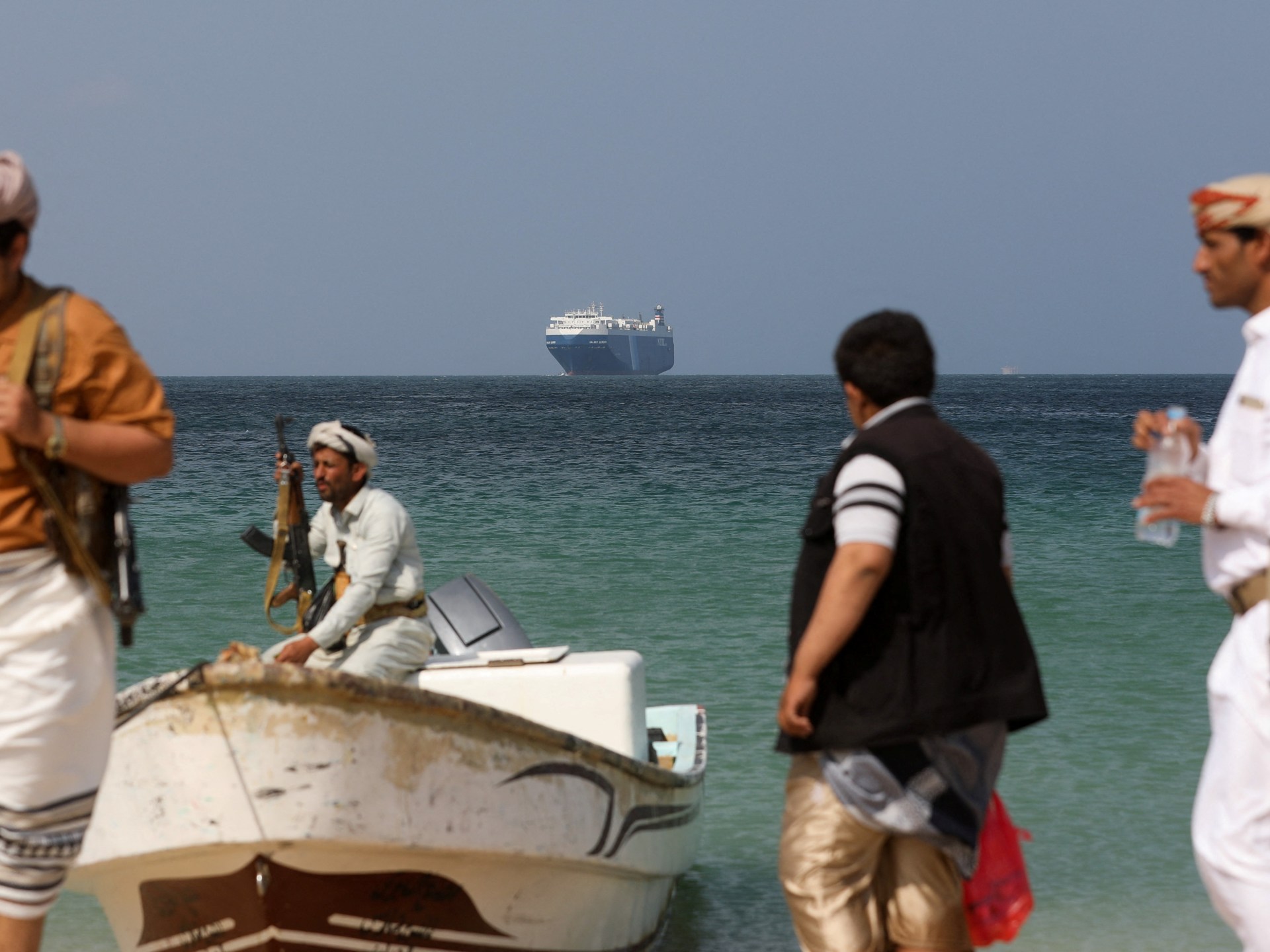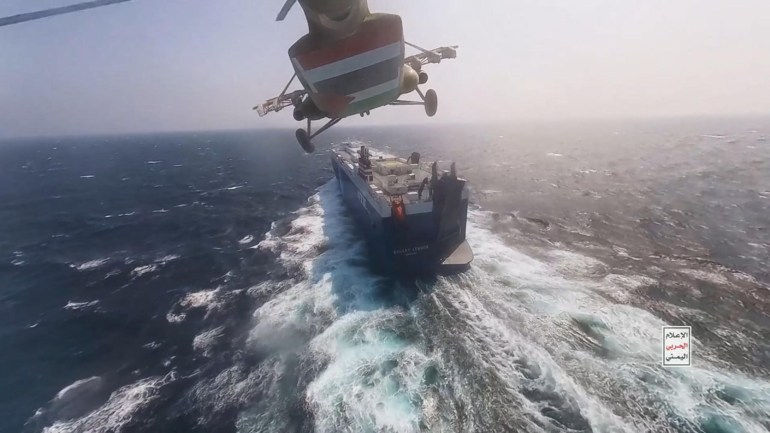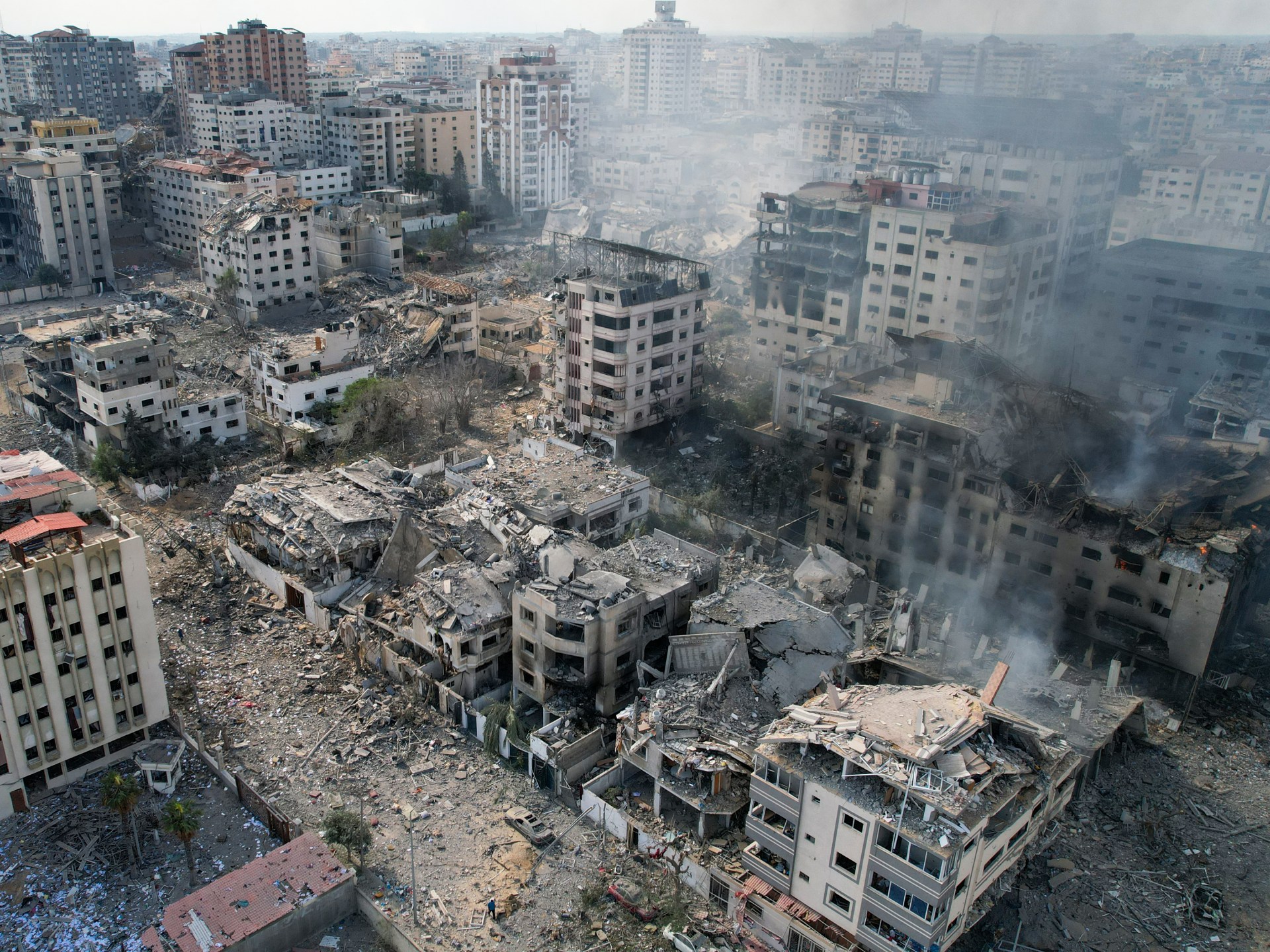
Hijackings, rocket attacks and drone strikes on ships by Yemen’s Houthi rebels have forced AP Moller-Maersk, a Danish shipping and logistics giant, and Hapag-Lloyd, a German shipping and container transport company Break Transports through the Red Sea.
Their decisions announced on Friday are a sign that major corporations are taking the security situation in the Red Sea increasingly seriously. But the fallout could also be felt in the world’s oil markets and the energy costs consumers must bear – but the extent of any disruption could depend on how major global players respond to the looming crisis, experts say.
Maersk said in a statement that its decision was based on the company’s concerns about the “severely escalated security situation in the southern Red Sea and the Gulf of Aden” in recent weeks. Recent missile and drone attacks on merchant ships pose a “significant threat to the safety of seafarers,” it said.
Maersk and Hapag-Lloyd operate together almost a quarter the global shipping fleet.
The growing uncertainty in the Red Sea is a consequence of Israel’s war against Gaza, which began on October 7th. Since Israel’s bombardment of the Palestinian enclave began ten weeks ago, the Houthis have attacked at least eight ships in the Bab el-Mandeb, the strait between Eritrea and Djibouti on one side and the Arabian Peninsula on the other.
At its narrowest point it is only 29 km (18 miles) wide Bab el-Mandeb is an important route for international trade –10 percent of the world’s maritime crude oil flows through this strait – meaning any disruptions will become a global problem.
The Houthis have targeted ships at least partially owned by Israelis or people transporting cargo to Israel across the Red Sea. In November, the group announced that it had taken over Galaxy Guide Cargo ship that it claimed was Israeli property. But Israel described it as a British and Japanese-operated cargo ship with no Israeli nationals on board. This ship was on its way to India.
The rebels, who have controlled large swathes of Yemen since 2014, have vowed to continue such attacks until a full ceasefire takes effect in Gaza. This is part of a strategy aimed at increasing costs for the US and others that support Israel in various ways.
Such hostilities also serve to demonstrate that the Houthis are a persistent force in Yemen and an increasingly bold and determined part of the so-called “Axis of resistance“. This also includes Hamas in Gaza, Lebanon’s Hezbollah, the Syrian government, and various Syrian and Iraqi non-state actors supported by Tehran.
Oil market “takes more attention”
There is little evidence that the Houthi attacks will stop any time soon. What does this mean for the oil market?
Colby Connelly, senior analyst at Energy Intelligence, a Washington-based energy information company, told Al Jazeera that the impact of these attacks on the oil market was “fairly limited” but “not intangible.”
“As these attacks continued, markets became more alert, so crude oil prices ended the week higher than they have been in the last few days or so, especially since these attacks don’t look like they are.” I’ll stop until there’s a stronger one “There is no effort to actually stop it,” he commented.
As tensions rise, it is hard to say where this Red Sea crisis will lead. “If Bab el-Mandeb is limited to oil traffic due to tensions in the region, there is a good chance that the price of oil will rise in some places due to a crisis and war premium on insurance and the products themselves,” said Paul Sullivan, a non- resident senior fellow at the Atlantic Council’s Global Energy Center, in an interview with Al Jazeera.
“Given the current circumstances, this is doubtful, but given the increasing tensions in the region, almost anything is possible. If things get bad enough for all types of cargo to be diverted around Africa, it could reshape many freight contracts, including for oil and liquefied natural gas (LNG). And prices will face upward pressure. “Weakening overall oil prices could mitigate this, but not for long,” Sullivan added.

No discernible attack pattern
One of the factors making this situation challenging is that Houthi missile and drone attacks do not necessarily follow any discernible pattern.
“The Houthis are behaving in ways that the more they do, the harder it is to determine what they will do next,” Connelly said.
If the Houthis tried to close the Bab el-Mandeb Strait, it would have a “massive impact” due to, among other things, shipping insurance risks, the cost of alternative routes and the possibility of supply disruption, Connelly said. “But I don’t think they have the ability to do that and something like that would certainly provoke a very severe reaction very quickly.”
In fact, the Houthis’ destructive actions in the Red Sea have the potential to significantly increase pressure on them from actors such as China, India, the Gulf Cooperation Council states, Iran and Western powers.
“Due to the negative impact on its economy, China opposes any disruption to global trade, especially on such strategic routes as the Bab el-Mandeb Strait and the Suez Canal. Therefore, China and Iran could – at China’s request – pressure the Houthis to limit their hostile activities in the Red Sea,” Amin Mohseni, an economics lecturer at American University, told Al Jazeera.
“It is important to note that the US, UK, China, Germany, Spain, Italy, France, Saudi Arabia and Japan already have some form of military bases in Djibouti, limiting the Houthis’ hostile activities in the Red Sea in the long term run. Russia and India are also interested in establishing their own military bases in the Red Sea,” he added.
Could China and India intervene?
Sullivan said he also believes some of these global players could increase their presence in this part of the world to ensure shipping is not disrupted by any actors in Yemen. “It wouldn’t surprise me if China and possibly even India sent more assets to the region to protect their oil. NATO could strengthen task forces that could focus on freedom and security of navigation. “The U.S. will become more engaged as tensions rise,” Sullivan said.
Still, the Houthis are likely to maintain their desire to influence the conflict as much as possible as Israel’s war on Gaza rages on and the Palestinian death toll passes 18,700.
The ongoing carnage in Gaza is likely to ensure that the Red Sea will continue to face greater threats, forcing the shipping industry and the world at large to prepare for new economic risks.






Recent Comments